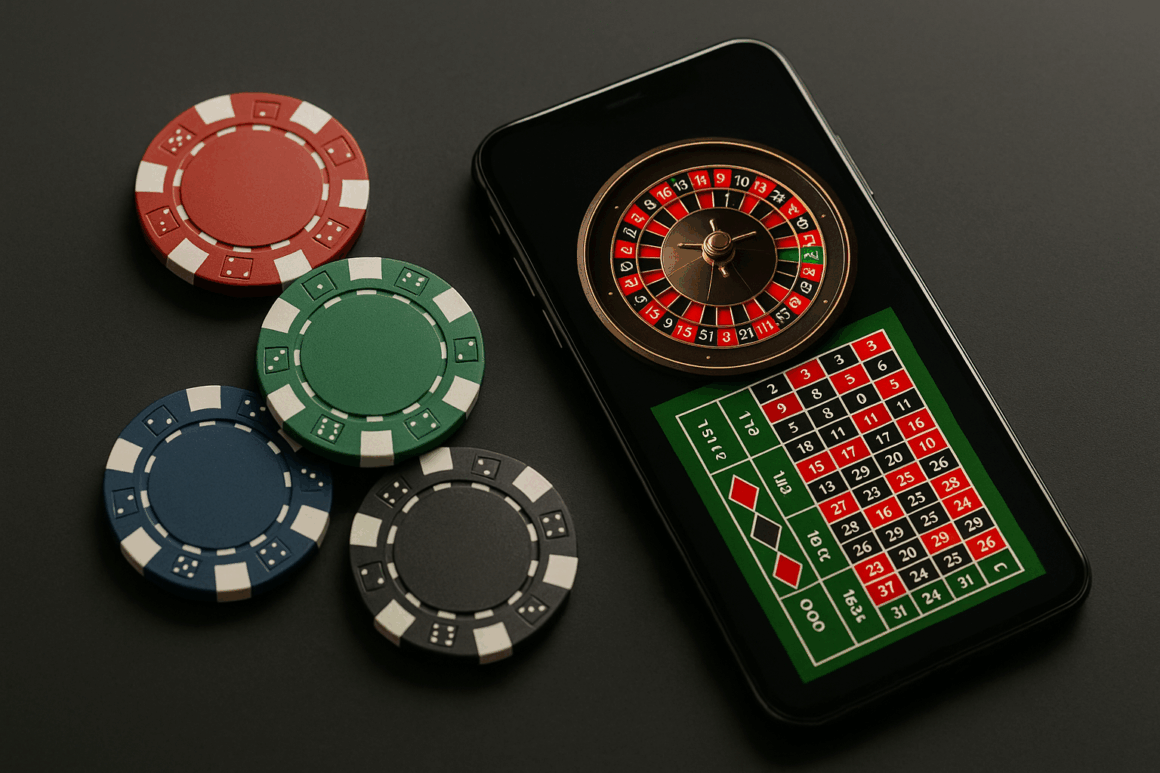More than 70% of online gambling sessions now happen on mobile devices, according to 2024 industry data from Statista. Smartphones and tablets dominate how players access slots, roulette and poker. Yet, desktop sites still hold their ground, offering deeper visuals, detailed interface and multi-table play. Understanding the differences helps players decide which environment fits their habits and technical expectations best.
How Design Shapes the Experience
Modern mobile casinos, including NineWin, are built using responsive HTML5 technology. This ensures that the same site can adjust automatically to different screen sizes without requiring separate downloads. In 2017, most casinos still relied on dedicated apps, but now over 90% of top operators favor browser-based mobile platforms.
Desktop sites, on the other hand, allow more complex layouts. They support multiple tabs, advanced filters and extended graphics. For example, a slot with 3D animation from NetEnt like Gonzo’s Quest Megaways runs at 60 frames per second on desktop, compared to around 45 FPS on most mobile devices.
Both versions use SSL encryption and comply with international gambling licenses. However, the way users interact—touch vs. click—affects engagement, betting rhythm and even perceived control.
Performance and Technical Requirements
Technology determines how fast and stable each version performs. The table below compares the essential technical differences between mobile and desktop gambling platforms.
| Feature | Mobile Casino | Desktop Site |
| Platform Type | HTML5 browser or native app | Full website client |
| Load Speed | 2–4 seconds average | 1–2 seconds on high-speed Wi-Fi |
| Storage Use | Low, relies on browser cache | High, requires browser extensions or plugins |
| Typical Resolution | 1080p on modern phones | Up to 4K on high-end monitors |
| Average Data Use | 60 MB per hour | 45 MB per hour on desktop browsers |
While the performance gap continues to narrow, desktops remain better suited for high-resolution games and multi-screen setups. Mobile, however, wins in portability and battery optimization.
Bonuses and Promotions Differences
Online casinos tailor promotions to each platform’s audience. Mobile players often receive app-specific or mobile-exclusive bonuses to encourage repeat visits. According to 2023 figures from the UK Gambling Commission, 35% of casino apps offered unique mobile rewards, such as no-deposit spins or limited-time reload bonuses.
Desktop users, conversely, tend to access broader loyalty programs and VIP dashboards, which are easier to navigate on larger screens. For instance, tier-based systems with points, cashback or weekly rewards appear more structured in desktop layouts due to the additional space for visual charts and progress bars.
Game Libraries and Software Providers
Mobile casinos now offer nearly identical game portfolios to their desktop counterparts. HTML5 technology replaced Flash-based software, which Adobe discontinued in 2020. Today’s top developers—Play’n GO, Pragmatic Play and Microgaming—design every release for cross-device compatibility.
Yet, subtle differences remain. Slot machines or live dealer tables optimized for touch screens usually feature simplified interfaces. Buttons are larger, and betting panels are hidden under collapsible menus to conserve space. Desktop sites still present advanced configuration options such as autoplay settings, statistical displays and multiple view modes.
Mobile-Friendly Game Types
Here’s a quick look at which games thrive on mobile platforms:
- Slots: Nearly all titles available, including jackpot and Megaways variants.
- Blackjack: Single-hand and quick-play versions dominate due to screen size limits.
- Roulette: 3D views simplified for faster spinning animations.
- Live Dealer Games: Streamed in HD, though mobile uses adaptive bitrate to prevent lag.

Most major casino providers now certify mobile titles with eCOGRA or iTech Labs, ensuring fairness identical to desktop versions.
Payment Systems and Security
On desktop, players often use full-scale payment gateways with visual verification steps. Mobile payments, by contrast, integrate with built-in features such as Apple Pay, Google Pay or SMS billing.
Regulated casinos in Europe and Canada apply the same security standards—256-bit SSL encryption and two-factor authentication (2FA). Transactions are processed under PCI DSS (Payment Card Industry Data Security Standard) compliance, guaranteeing encrypted payment channels.
One factual distinction is withdrawal speed. Mobile casinos frequently offer one-click re-verification via biometric ID, accelerating payouts by up to 25% compared to manual desktop logins.
User Behavior and Session Duration
Players behave differently depending on their chosen platform. Data from H2 Gambling Capital in 2024 revealed that mobile users play in shorter, more frequent bursts—averaging 7 to 10 minutes per session. Desktop sessions, in contrast, often exceed 25 minutes and involve higher average stakes.
Psychologically, mobile sessions encourage “microgaming,” where users spin a few reels during commutes or breaks. Desktop gambling, meanwhile, attracts users who plan structured gaming sessions, analyze statistics or participate in tournaments requiring concentration.
Visual and Audio Quality
Graphics performance defines immersion. Desktop setups, often equipped with dedicated GPUs, display advanced lighting effects and cinematic transitions. For example, Evolution Gaming’s live blackjack streams reach 1080p quality with minimal delay on desktop. On mobile, the same streams dynamically reduce resolution to maintain smooth playback.
Sound quality also differs. Desktop speakers or headsets deliver fuller surround audio, while mobile devices compress sound files for efficiency. Game designers now provide separate sound profiles optimized for mobile playback, preserving clarity without overloading the CPU.
Responsible Gambling Tools
Both mobile and desktop sites integrate responsible gaming controls, though accessibility differs. Desktop interfaces feature full dashboards where players can set deposit limits, self-exclusion periods or reality checks. Mobile versions usually condense these into drop-down menus or quick toggles.
Regulatory bodies like the Malta Gaming Authority and the Swedish Spelinspektionen require all licensed casinos to display responsible gambling links prominently. On mobile, this often means a persistent footer icon, while desktop users see banners or sidebar menus.

